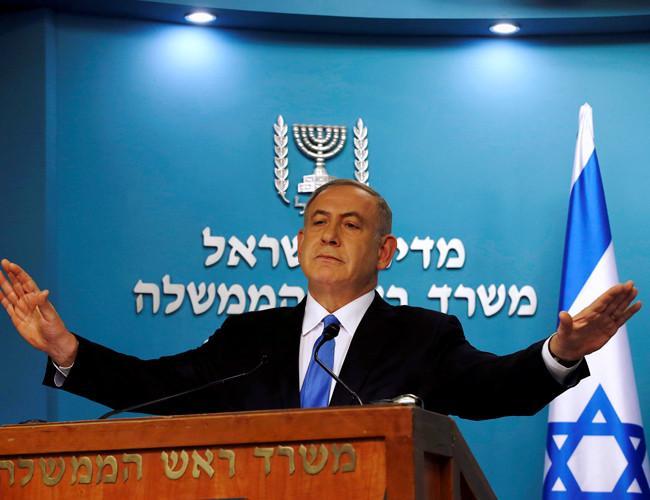
The Israeli parliament voted on Nov. 27 in favor of a draft law barring police from publicizing its conclusions in criminal probes -- legislation seen as shielding Prime Minister Benjamin Netanyahu, who is under investigation for corruption.
The draft must still pass two more parliamentary votes. But if written into law, police would not be allowed to say whether they have found sufficient grounds to charge Netanyahu, keeping the Israeli public in the dark until the attorney-general determines whether the prime minister is to be prosecuted.
The draft law also proposes a one-year jail term for officials who leak findings to the press.
Its two sponsors, confidants of Netanyahu, said the law is meant to protect suspects' rights and reputation, while the opposition derided it as a blatant attempt to protect Netanyahu and withhold knowledge from the public about his investigations.
"The public doesn't need to know everything. The public will find out at the end," Netanyahu's coalition head, David Bitan told the Knesset television channel.
Netanyahu has said he has no interest in promoting personal legislation but he has not ordered Bitan and his co-sponsor of the bill, David Amsalem, to withdraw the legislation.
Netanyahu is a suspect in two cases, one into alleged meddling in the media industry and the other into gifts he received from rich businessmen. He denies any wrongdoing.
But, if charged, he would come under heavy pressure to resign or could call an election to test whether he still had a mandate.
"This is a Netanyahu law," said Yair Lapid, leader of the opposition party Yesh Atid, which latest polls show as neck in neck with Netanyahu's Likud. "It is tailored for very few people. The only people to benefit from it are politicians, mafia heads and politicians who behave like mafia heads."
All four prime ministers of the past two decades have been suspects in police investigations, but only Ehud Olmert was charged and convicted. He spent 16 months in jail for accepting bribes from real estate developers.
In high-profile cases such as these, police usually say if they have gathered sufficient evidence against the suspects, before handing over to the Justice Ministry, where the Attorney-General and prosecutors decide whether to file charges.
The attorney-general has expressed alarm about the proposed legislation.